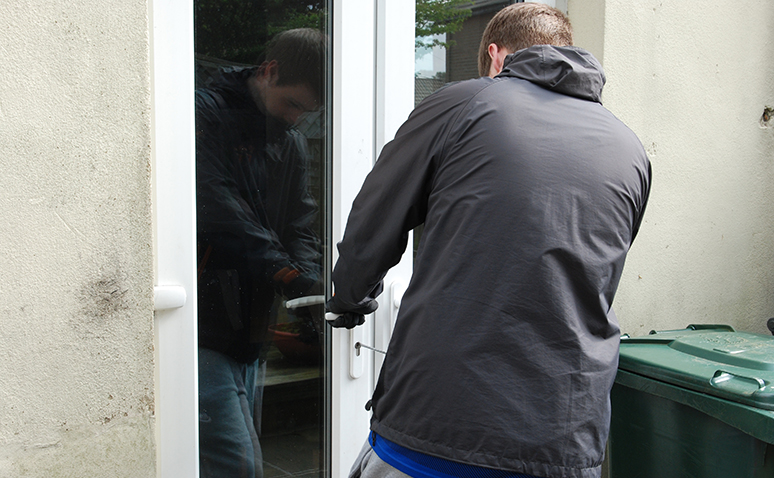Poacher turns gamekeeper – burglars shed secrets to criminologist

Wed, 01 Jun 2016 11:50:00 BST
Professor Rachel Armitage persuades Armley Prison offenders to share the tricks of their trade
 PROLIFIC burglars serving jail terms are revealing tricks of their “trade” that are enabling a criminology researcher at the University of Huddersfield to rewrite long-established crime prevention guidelines.
PROLIFIC burglars serving jail terms are revealing tricks of their “trade” that are enabling a criminology researcher at the University of Huddersfield to rewrite long-established crime prevention guidelines.
Professor Rachel Armitage (pictured right) is Director of the Secure Societies Institute at the University of Huddersfield and is a leading researcher in the field of ‘designing out crime’. New building developments can apply for a police-recognised Secured By Design Award.
 “But I was becoming increasingly aware that many of the principles behind designing out crime came from academics or the police,” said Professor Armitage. She wanted to learn from the criminals themselves.
“But I was becoming increasingly aware that many of the principles behind designing out crime came from academics or the police,” said Professor Armitage. She wanted to learn from the criminals themselves.
So, in tandem with Chris Joyce, (pictured left) who is Force Crime Prevention Officer for West Yorkshire Police, Professor Armitage embarked on a series of in-depth interviews with burglars serving sentences in Armley Jail, Leeds. So far, 24 prisoners have taken part.
Some of them were such prolific offenders that they had committed up to ten burglaries a day over many years. Selected prisoners were offered the opportunity to take part in interviews lasting up to two hours with Professor Armitage and Mr Joyce.
They were shown a sequence of photographs of houses and residential areas and asked to comment. Some of the responses have made Professor Armitage realise that many of the long-established designing out crime recommendations needed a rethink. She has already presented her findings to experts in the UK and overseas and is working with the London Mayor’s Office for Policing and Crime – which owns the Secured by Design scheme – on revisions to some of the principles.
 For example, jailed burglars told the interviewers that high fences at the rear of properties were not a deterrent because once they had been scaled they provided concealment. Also, measures such as the word “Private” stencilled into the road surface in housing estates simply told the criminals that that the occupants were prosperous and had plenty worth stealing.
For example, jailed burglars told the interviewers that high fences at the rear of properties were not a deterrent because once they had been scaled they provided concealment. Also, measures such as the word “Private” stencilled into the road surface in housing estates simply told the criminals that that the occupants were prosperous and had plenty worth stealing.
“One of the research findings that I have often spoken about in the past is that offenders will generally try to break into a house for up to five minutes and if they don’t get in, they go away,” said Professor Armitage.
“But these burglars were telling us they would just keep going until they got in. Fifty minutes is nothing to them because drug taking leads to a lack of inhibition. I would say that 90 per cent of the offenders we spoke to were on a combination of crack and smack as they committed burglaries.
 “The test that we do on windows and doors to see how long they will withstand attack currently lasts about five minutes. We need to alter that now,” said Professor Armitage.
“The test that we do on windows and doors to see how long they will withstand attack currently lasts about five minutes. We need to alter that now,” said Professor Armitage.
“We are finding that theories and principles of designing out crime that have been around from the 1970s and 80s are not necessarily applicable to the criminal modus operandi of 2016.”
Many unexpected details have emerged from the interviews with burglars, added Professor Armitage.
“For example, they always knock or ring the doorbell before they break in. If someone answers, they make an excuse and move off. If not, they go in, but if there were some signs of occupancy they won’t go near the house. If they hear music or someone shouting, they just would not touch it.”
There were no advantages to the prisoners from talking to the researchers, but some hoped it could help put right some wrongs, said Professor Armitage.
“A lot of them do feel bad about what they have done. One talked about breaking into a house on numerous occasions because it was a perfect target, but one time he realised that the object on the sofa what he thought was blanket was an old woman. He couldn’t get over that he had been breaking into this house once every couple of weeks – he was nearly in tears.”







